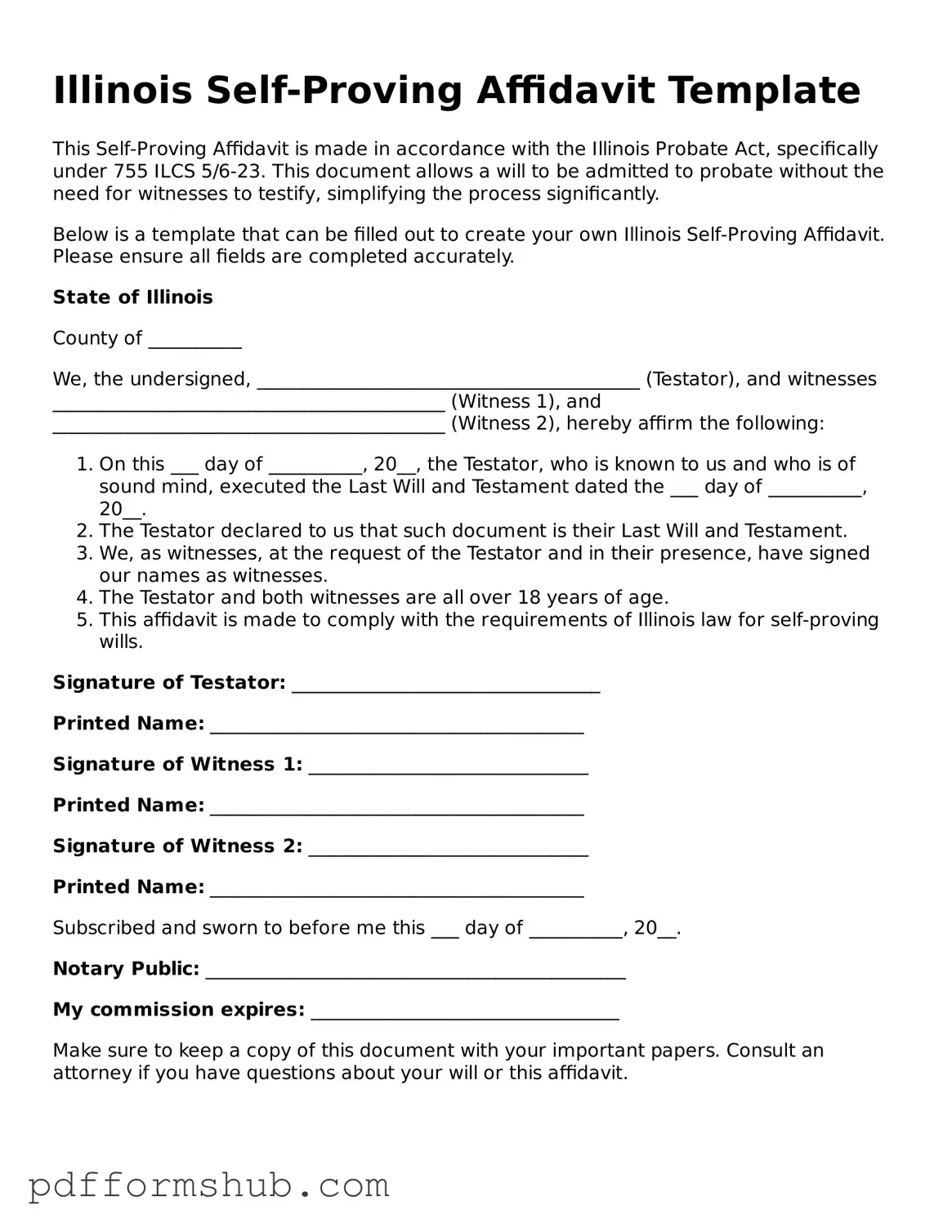Attorney-Verified Self-Proving Affidavit Form for Illinois State
The Illinois Self-Proving Affidavit is a legal document that allows a testator's will to be validated without the need for witnesses to appear in court. This form simplifies the probate process by providing evidence that the will was executed properly. Understanding how to complete this form can streamline the administration of an estate, making it easier for loved ones during a difficult time.
To fill out the Illinois Self-Proving Affidavit, click the button below.
Customize Form

Attorney-Verified Self-Proving Affidavit Form for Illinois State
Customize Form

Customize Form
or
Free PDF Form
Short deadline? Complete this form now
Complete Self-Proving Affidavit online without printing hassles.